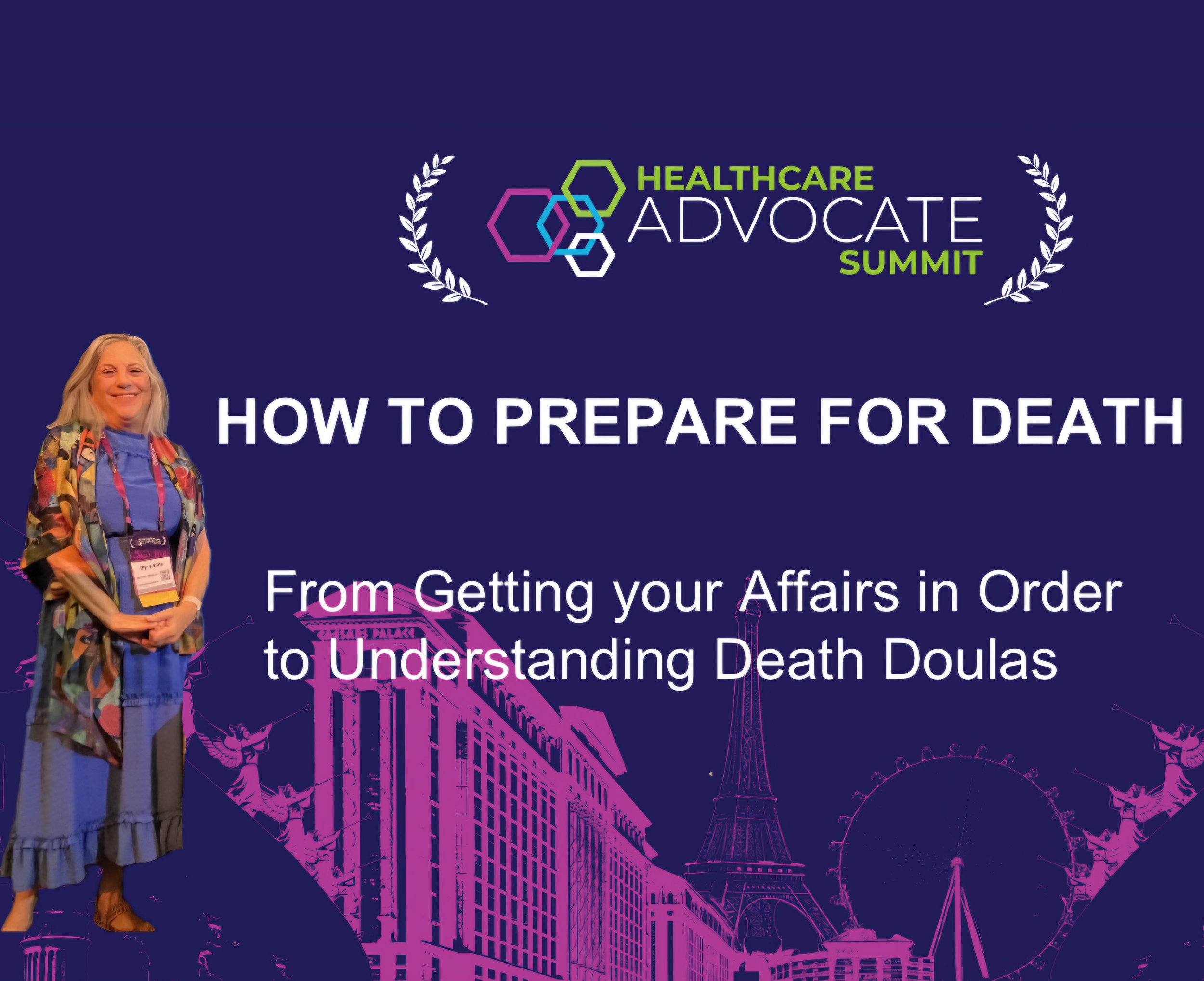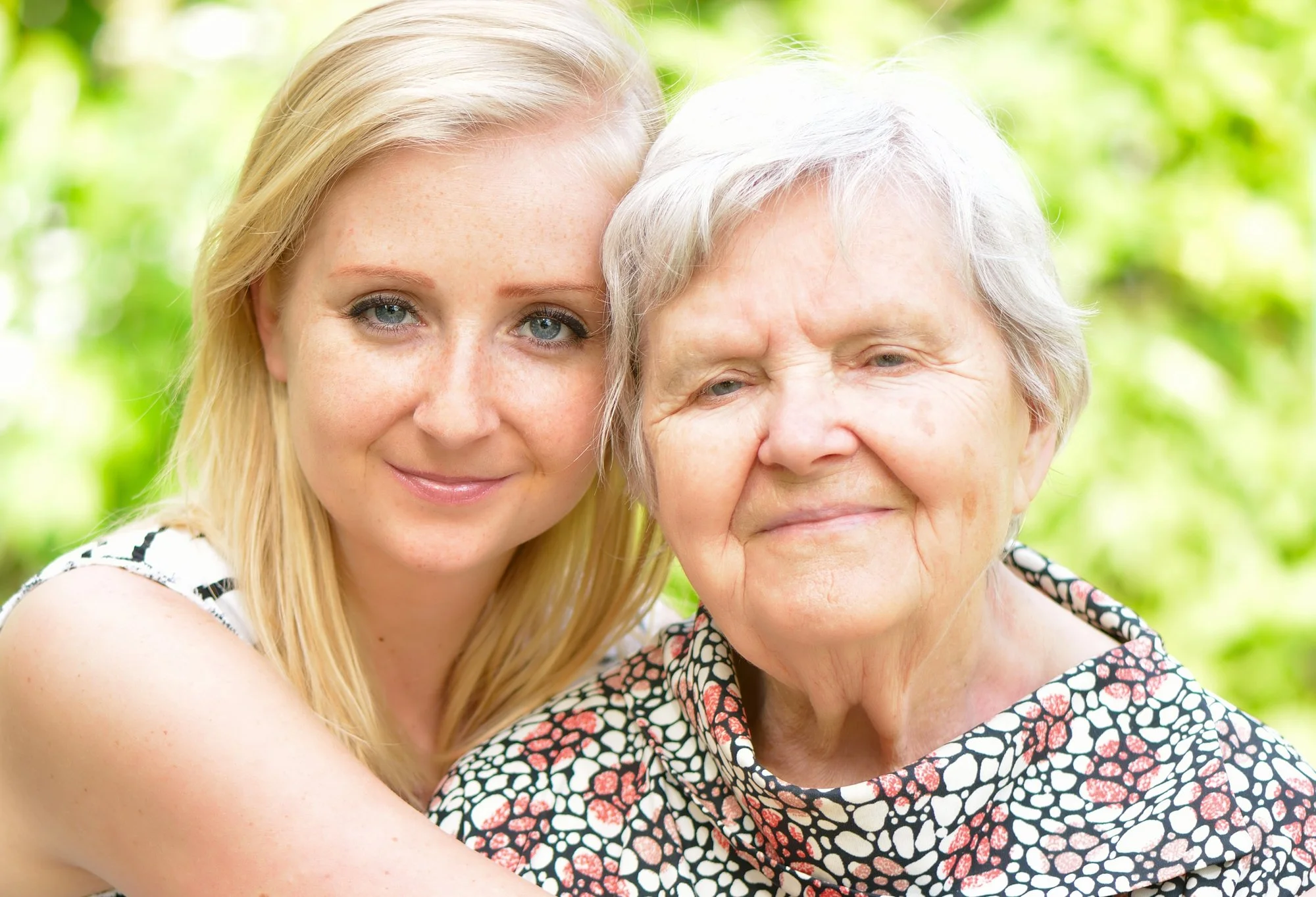Patient Advocacy -- Necessity to Navigate Healthcare
The healthcare field is changing rapidly, and it is not for the better if you are the patient. We see many excellent physicians leaving the field because of the bureaucracy and pressure, forcing us to find new providers. Doctors no longer work for themselves; they work for health insurance companies and are told how many patients they need to see per hour/ day, etc., and it is not enough time, especially as they often have to deal with medication denials, finding alternative treatments, and spending time on the phone on "peer to peer" reviews. These are when your health provider (often after the second or third denial) has to schedule a time with a representative from your insurance company who explains why they are refusing to cover testing or medications.
I don't know a single person who has not had to deal with denials, delays, underpayments, etc. My husband had prostate cancer, and although the abnormality was seen on an MRI, our insurance at that time did not allow for an MRI-guided biopsy (now the standard of care) and would only approve a "blind biopsy," where the doctor took a sample of the 12 most common sites where cancers are. I fought it, and it was approved. The doctor
Read More
The Risk of Falling
As a senior (still hard to say this), I am very cognizant of the risk of falling, how easy it actually is, and how much damage can be done. I admit I have sometimes tripped on the stairs, even over my two feet. So far, all I have to show for my falls is three (badly) sprained ankles. But I have no illusion that won’t change. As we age, our bones get more brittle, plus we don’t react as fast to stop a fall. One fall can change the quality of your life and all your plans and your retirement years.
So, what do we do? We recently moved to a condominium with all hardwood floors, so we purchased quite a few carpets, which I know can be dangerous. I bought pads that prevent them from moving, but I also went the extra mile and taped the edges down. I am also diligent when I walk down stairs and look down. Many years ago, I had a severe ankle sprain when I missed a step, and I don’t want to do that again. When you carry a clothes basket or something else, missing a step is easy. Going down stairs is more dangerous when you wear bifocals, as looking down, you see “close,” making it more difficult.
A few tips. Look ahead, and don’t do anything else when walking, such as texting on your phone. Such distractions pose a significant risk of falling. Always use the handrails (i.e., in the subways and escalators). Yes, they may be full of germs, so use a tissue, have a pocket-sized hand sanitizer, or wash your hands when finished. Don’t carry too many things at once, affecting your balance. If you carry a
Read More
The Ability to Say Goodbye
To so many of us, hospice is an obscene word: sending someone off to die. It's giving up. And it is so far from that.
I was fortunate to spend the last decade of my career as a Physician Assistant working in an oncology practice with a sensitive, caring oncologist who bent the rules and gave patients the time they needed, not what the insurance company dictated. We were honest about what they were going through, and as soon as a patient was given a diagnosis of stage 4/incurable cancer, we discussed palliative care and hospice so there would be no surprises.
I just said “goodbye” to one of these patients. Donna was diagnosed with breast cancer many years ago, and it became metastatic 11 years ago! She has lived with metastatic cancer for 11 years and, for the past few having the benefit of palliative care, being taken care of, and still being treated. She is still alive, talking with her family and friends, and beginning to say good-bye. But nobody knows when she will actually pass, but it will be with dignity, and no pain.
Palliative care is not hospice. It provides comfort and supportive care to people with
Read More
Patient Advocate--A Necessity in Navigating Healthcare
The healthcare field is changing rapidly, and it is not for the better if you are the patient. We see many excellent physicians leaving the field because of the bureaucracy and pressure, forcing us to find new providers. Doctors no longer work for themselves; they work for health insurance companies and are told how many patients they need to see per hour/ day, etc., and it is not enough time, especially as they often have to deal with medication denials, finding alternative treatments, and spending time on the phone on "peer to peer" reviews. These are when your health provider (often after the second or third denial) has to schedule a time with a representative from your insurance company who explains why they are refusing to cover testing or medications.
I don't know a single person who has not had to deal with denials, delays, underpayments, etc. My husband had prostate cancer, and although the abnormality was seen on an MRI, our insurance at that time did not allow for an MRI-guided biopsy (now the standard of care) and would only approve a "blind biopsy," where the doctor took a sample of the 12 most common sites where cancers are. I fought it, and it was approved. The doctor told us that if a blind biopsy had been done, the cancer would not have been found. However, it took a long time for the doctor's office to get paid, leaving a red "balance due" in his chart. When my husband called to make a follow-up appointment after telling the office staff that he was diagnosed with cancer, they refused to make it since he "owed money." That is where an advocate can come in. Some patients would hang up, embarrassed, and not have a follow-up. I called and got it resolved. He was able to see the doctor and continue his follow up care. But how many people have the tenacity and stubbornness to do this? A good Patient Advocate will do it and more.
Read More
Moving as a Senior : Part 2
Now that we have moved out of state and to a 55 and over community, I have a new perspective and believe it is so important, especially when getting older or facing a change in your life, to think about what a move would entail and should you make the decision to do so. We decided to live closer to our adult children and family. The drive to see our grandchildren was long, and making plans was complex for everyone, especially as they became busier. Now it is much more doable.
Moving is challenging both physically and emotionally. Here are a few questions to ask yourself:
1-Is it time to move?
2-Is the neighborhood changing? Are the people moving in young or people with small children?
3-Do you still have friends in your neighborhood?
4-Where do your children and grandchildren live? (I don't advocate "chasing" the children, but if you have grandchildren, it's nice to drive to see them instead of having to fly all the time.)
5-Can you navigate the stairs safely? Do you think you will be able to do so in 3,5 or 10 years?
6-Can you perform the usual tasks for the upkeep of your home, or has it become too much?
7-How much of your home do you use or need? Many of us live in family-size homes and "live" in 3 rooms daily.
8-When you do find a new home, will there be enough storage? We rotated clothes depending on the season. Can your closet accommodate (if needed) 4 seasons of clothes? Will you need to buy all new furniture?
9-If something medically happened to you, and you couldn't return home, how would that impact your children?
Read More
Moving as a Senior
My husband and I moved to Baltimore, his hometown, 36 1/2 years ago. I cried every day for months. I had no friends, two small children, and he was traveling for work.
Fast forward 36 years, one son moved from Virginia to Philly, and the other, with my grandchildren, lives in Long Island. The question posed by my son seemed innocuous enough, "what are you still doing here? You are 71, and you have no family left in Baltimore.“
And the reality was that we were living with our heads in the sand. We had a great house and wonderful friends, but our family was far away. How long before we had to make a change? Living here was manageable, and the thought of moving was daunting and terrifying. All new doctors ---that is the scariest part.
So, we started looking at places between both sons and found some 55 and over communities in central Jersey. We found a condo that checked the boxes (2 bedrooms with an office) facing the woods. (We love our birds and wildlife!) Our house sold in 5 minutes (literally), and not four months after we made our decision, we moved out of state, away from friends and our comfort zone.
My advice: don't wait.
Read More
How to Prepare for Death
Death. A word we shudder to say or think about. On the other hand, birth is at the opposite end of the spectrum, a time of joy, hope, and excitement. And while they conjure up very different emotions, we need to think about death and plan for it. We are all going to die someday, and we need to think about it, plan for it, and bring our loved ones and friends into the conversation because, whether we want it or not, it will happen. And everyone will be much better off if plans are discussed. We plan and discuss birth; let's do it with death and not be afraid to say the word.
The most important "lesson" is having a conversation with your loved ones and having Advance Directives (these only come into play IF you are unable to make a decision for yourself). Think of it as an insurance policy, which will be referred to only if you cannot make decisions at the time. Suppose you don't have an Advance Directive and don't have a spouse or children. In that case, the hospital will assign someone to decide for you. If you want to make decisions concerning your health in a crisis, such as if you want to be on a ventilator or have a feeding tube, get them done. You also will need a health care proxy and a POLST or MOLST. These are forms within each state that are vital; if an EMT is called to your residence and you are not breathing, they legally have to do everything to keep you alive, even if you have a DNR tattoo plastered to your chest!
Also, redo your wills and other forms annually and with every health change or move. Recently, I met with a family member and their 90-year-old mother, who they thought was in good shape. She had a MOLST (Maryland Orders for Life-Sustaining Treatment) form; HOWEVER, it was dated in 2016! Her health has changed, and the MOLST order was folded into 8ths in her wallet! Nobody would ever find it.
Recently, I had the amazing opportunity to speak at a Patient Care Conference for Health Care Advocates about death and the importance of preparation.
Read More
Decisions: Life After Retirement
My husband and I live in a lovely, comfortable house where we raised our two sons. It is a rancher, and with the exception of having the washer and dryer downstairs, it is pretty much a perfect home to age in place. We have a large, private backyard, and we enjoy being outside watching the birds (and the deer outside the fence). We could probably stay here indefinitely; however, we are not near our family. But otherwise, life is good here.
We have one son, daughter-in-law, and grandchildren in Long Island; another son lives in Philadelphia. After 36 + years in Baltimore, we made the difficult decision to move to New Jersey, in between our sons so that we could see them more often.
What a difficult, bittersweet decision, but the right one. My husband and I figured it would take two years to downsize. While we thought about it in April, we are moving in 8 weeks! All the stars aligned, and we are moving to a 55 and older community. We found the "right" place, our offer was accepted and we sold our house right away. No looking back.
This is not an easy decision for anyone, especially us, having been in Baltimore for so many years (my husband's hometown). I know where to buy my fresh fish and the best fruit, get my hair cut, and we have all of our doctors.
Read More
The Reality of Dealing with Death
As a Physician Assistant working with cancer patients, sometimes at the brink of death or dealing with metastatic cancer, I would make it my business to be logical, without too much emotion. It is always easier to be that way, but it never lasted because I would put myself in their place (both the patient and their loved ones) and return to reality.
I learned to use the words “cancer, death, died, do not resuscitate, pound on the chest” as easily as the words “happy, sunshine, coffee.” Because I had to; while working there I didn’t sleep well for years and fondly remember so many of my patients.
Now, to another type of reality. An old, old friend (the platinum kind, not in age) is dealing with metastatic cancer. She lives out of state, and there are times when I want to hug her and tell her all will be okay and times when I want to shake her, you need to” get it.”
Read More
Saying Good-Bye Isn't Easy
As I sit here with Ms. X in her hospice room as her death doula, I think about how difficult it is to die. She is unusual because she has been here for more than two weeks. In fact, this is my third visit. When I first came 13 days ago, she was semi-conscious, occasionally crying out, but mostly comfortable. I watched her aide lovingly bathe her, covering her private parts and moisturizing her skin. Lastly, she plucked the little white hairs on her chin so she would look beautiful as she prepared to die.
When I visited last week, she was still with us but had slipped into a coma. I was sure she was able to hear me. Studies have shown that hearing is one of the last senses to go. I talked about the balloons in her room, the cards from her family members, and how much they love her. But it is nearly impossible for them to be here all the time. She is here in a beautiful facility, cared for by nurses, nursing aides, doctors, and death doulas.
Read More











